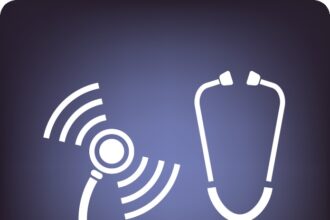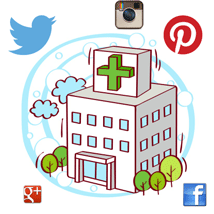
Twitter is a conversation, and just as you observe conversation etiquette in real life, when it comes to healthcare tweeting there are unwritten rules, too. If you are new to Twitter becoming familiar with these rules will ease your transition into its culture; if you are already a seasoned tweeter, take this opportunity to see how you score on your Twitter etiquette.

Twitter is a conversation, and just as you observe conversation etiquette in real life, when it comes to healthcare tweeting there are unwritten rules, too. If you are new to Twitter becoming familiar with these rules will ease your transition into its culture; if you are already a seasoned tweeter, take this opportunity to see how you score on your Twitter etiquette.
Rule #1 Be polite at all times
Being courteous to those who follow you is the first rule of Twitter etiquette. Apologize if you make a mistake and never get drawn into a public argument. If someone wants to argue with you on Twitter either ignore them or if they have a genuine grievance take it offline.
Rule #2 Keep it professional
Twitter is an excellent way to allow your personality to shine through your tweets, but you need to strike the right balance between the personal and professional. The standards expected of health care professionals do not change because you are communicating through social media. Posting inappropriate photos and using explicit language is definitely not on. Be professional at all times; avoid flippancy or irreverence which may be misconstrued.
Rule #3 Acknowledge your followers
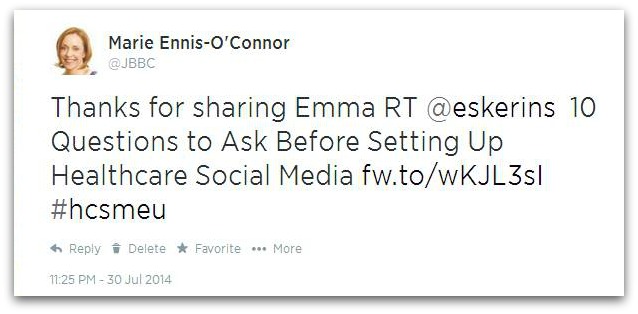
As much as possible respond to those followers who engage with you and thank those who “Retweet”(RT) your updates in a timely manner. Use their real name whenever you can.
Rule #4 Learn the etiquette of following
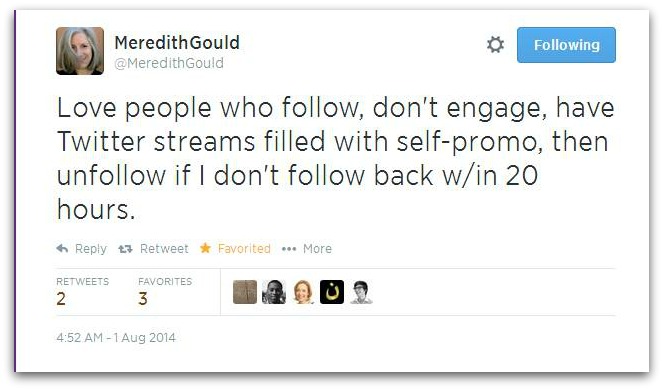
You are under no obligation to follow every person who follows you. Following a large number of people indiscriminately diminishes your credibility. Be selective and only follow those you genuinely want to engage with and who add value to your Twitter feed. Similarly not everyone will want to follow you and that’s ok. Never call someone out for not following you. Finally don’t be the kind of follower who follows someone in order to get them to follow back, and then immediately unfollows.
Rule #5 Use “Direct Message” (DM) for personal conversations
Whatever you post on your Twitter timeline is visible to everyone (whether they’re following you or not). If you are engaged in a private conversation with someone on Twitter, use the “Direct Message” (DM) function to communicate. If you want to get in touch with someone about a business opportunity, contact him or her by email.
Rule #6 Avoid overt self-promotion
While Twitter is a good place to promote your healthcare expertise or service, too much self-promotion will lose you followers. It’s ok to share your own content, so long as you balance it out by sharing content from others too. Some social media experts suggest following the 80/20 rule – posting content for your followers 80% of the time and for yourself 20% of the time – but there are no hard and fast rules on this. In the same vein constantly retweeting people who praise you makes you look boastful and self-serving.
Rule #7 Always credit your sources
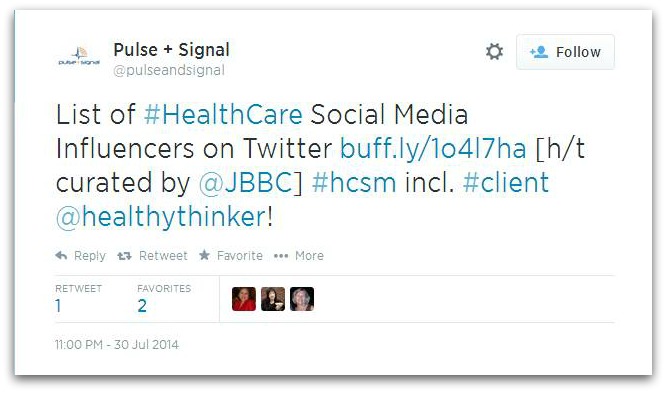
Be transparent. If you tweet an idea or opinion that originated with another Twitter user, give them credit. Clicking “Retweet” (RT) on a user’s Twitter update allows you to share it with your followers. Alternatively you can manually retweet the post (add “RT” or “via” followed by @ the user’s handle) and add your own comment or insight. If you abbreviate the original tweet add “Modified Tweet” (MT). Adding HT (meaning “Hat Tip”) to acknowledge a user who has pointed you in the direction of something interesting is considered polite.
Rule #8 Shorten your links
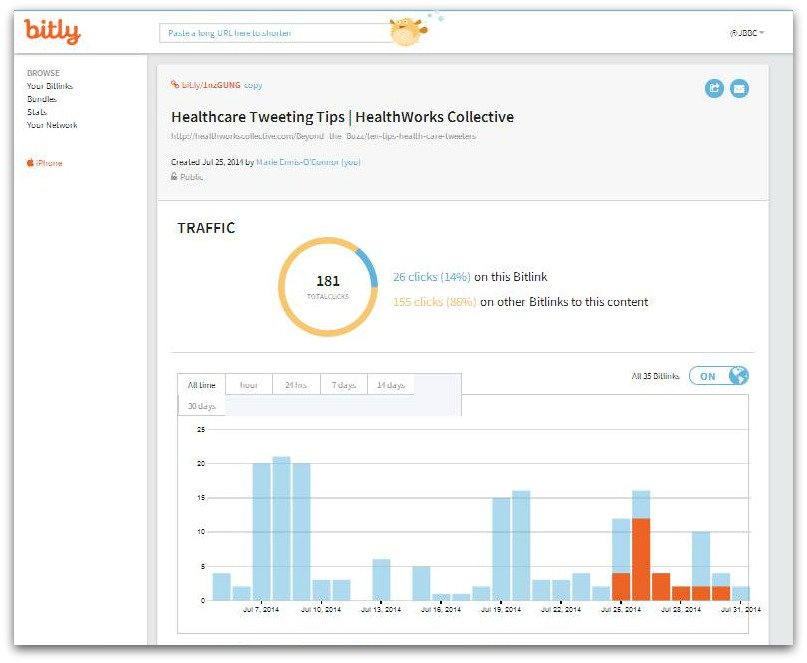
Shortening long links in your tweets makes for a more streamlined experience for you and your followers. Use a url shortener like bit.ly which also gives you useful realtime information about who’s clicking your Bitlink.
Rule #9 Forgo automated services
Do not use automated tweets to thank new followers when they follow you. You may do it with the best of intentions but an auto-DM (automatic direct message) is often viewed as spam. Never auto-DM a link to your website or service.
Rule #10 Ask for Retweets sparingly
It’s ok to ask for a “Retweet” (RT) once in a while, but constantly seeking RTs from your followers is annoying for them.
Rule #11 #Don’t #overuse #hashtags
A hashtag is a popular way of creating and monitoring a conversation around a particular health related topic. To create a hashtag, simply place the # symbol before a word but don’t over do it. Placing too many hashtags in your tweet is visually unappealing and may make your tweet look like spam.
Rule #12 Don’t flood your Twitter feed with multiple tweets
If you do a lot of catching up on blogs and other online content first thing in the morning, it is easy to flood your Twitter feed with multiple links. Using a scheduling tool will help you manage a steady trickle of valuable tweets throughout the day, rather than deluging your followers with a downpour all at the same time. If you’re going to be live-tweeting or taking part in a healthcare chat it’s polite to let your followers know that you will be tweeting more than usual. Stick to your allotted 140 characters; spreading your thoughts over multiple tweets can be off putting.
Rule #13 Add value to the healthcare conversation
When you share a link to an article, go beyond the headline to add your insight. Contribute your expertise to one of the many health related Twitter chats. You will find a full list of health hashtags via Symplur’s Hashtag Project.
None of the above rules are mandatory and you will likely see them flouted every day on Twitter. However by following these unspoken rules of Twitter etiquette you are on the right path to attract new followers, engage more meaningfully with your existing followers and enrich the online healthcare conversation.
Happy Tweeting!
Logo by Marie Otskua







